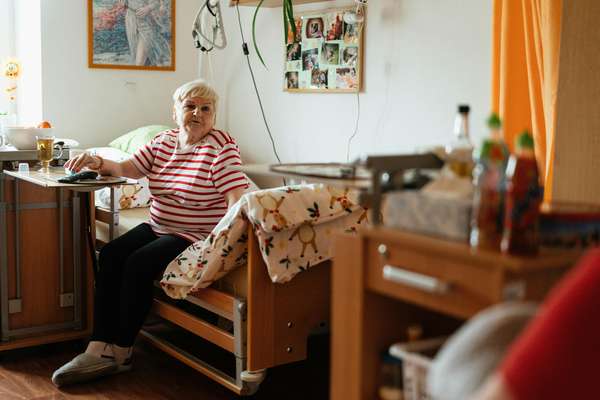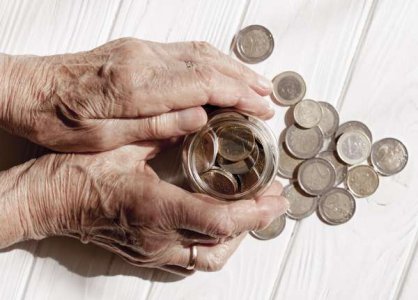
It seems we have been noticing, addressing, attempting to even up the gender pay gap for an awfully long time now. And yes, things have improved. But that’s of little comfort to the thousands upon thousands of Australian women aged 60 and over who are heading into retirement and facing decades of—let’s face it—poverty.
Given mandatory super was introduced more than 30 years ago, you really have to ask why?
But it seems super has served some people well, and others not so well. And many women fall into the category of not so well.
This retirement gap was highlighted last week with the release of Older Women's Economic Security in Retirement—an important report from the Super Members Council. The launch included a roundtable discussion about why women are so disadvantaged when it comes to retirement savings.

There are a multitude of reasons, and some good work is being done but not quickly enough to help the almost five million women aged 50 and over, most of whom struggle to make ends meet in retirement.
Here is a brief summary of the most compelling findings in this report:
Common life events
Every retirement is different, but across the life course of most Australian women there are some commonalities—life events that can create ‘sliding doors’ moments. These include:
Care giving for children, spouses or older relatives
Menopause
Family violence
Divorce or separation
Illness
Women entering retirement have much less
At age 60-64 the median super savings for men is $205,000 but only $154,000 for women.
This is 25% less for women, establishing a major gap that widens with age.
Living in poverty
This is the situation for 21% of men and 25% of women aged 60 or over. It is an epidemic. Why are we not talking more about this? Or, more to the point, doing something to address it?
Single renters do it tougher
Single renters’ housing costs (rent, even when supplemented by Commonwealth Rent Assistance) means 23% of those who rent are living below the poverty line.
Of older females who rent, an astonishing 60% are living in poverty. The number of recent retirees who rent has doubled in the last 20 years. This is a trend that is increasing.
It’s high time to acknowledge that the housing crisis does not just affect younger people trying to get into the housing market.
Super contributions
According to data from 2022, the average woman has 18% less in super contributions than the average man. Over the years, this amount compounds.
This means that super savings increase at a higher rate for men and a much lower rate for women. Every single dollar counts.
If an older woman has $35,000 in an Account-Based Pension (ABP) this will mean a top up on full Age Pension payments of 15% extra.
Barriers to workforce participation are significant
Getting back to work after a time out is really difficult. There is a confidence gap, ageism barriers, and mysterious algorithms that mean you can apply for hundreds of jobs and never crack an interview.
What does this mean for female retirees?
The bottom line is that women have lower economic security than men. They have less super, with some having no super at all. This is because they spend less time in the paid workforce, they earn less for each hour of work and therefore have lower contributions to super.
To quote the report:
“A lower super balance means lower economic security during retirement—with greater difficulty paying for basics like food and transport, less capacity to afford things you enjoy, and less ability to cope with unexpected expenses. The challenges are particularly acute for older women who are single and those who rent, with almost 60 per cent of older renters living below the poverty line – defined as having annual income less than half the median of all households, adjusting for household size (i.e. a relative poverty line). While the Age Pension provides a basic safety net, it is only just above the poverty line for homeowners, and 23 per cent below the poverty line for single renters (after housing costs and Commonwealth Rent Assistance).”
How do life events affect financial security in retirement?
The Super Members Council report outlines five important factors:
1. Early retirement (a lost participation gap)
Modelled to equate to $71,500 less super by age 67 and $2600 per annum reduction in retirement income for those forced to retire at 50.
2. Changes in health (including menopause, forcing retirement or fewer work hours)
Estimated to equal $81,000 less super by age 67 and $2500 less per year.
3. Informal caregiving (relevant to more than one in seven women aged between 45-65)
Modelled to equal $28,600 less super by age 67 and $1000 less income per annum if working part time rather than full time from age 60.
4. Separation and divorce (one in six women over age 50)
This can also mean higher outgoings if supporting children and loss of homeownership.
Modelling suggests a separation or divorce at age 50 leads to $67,600 more in super (due to higher work income after a breakup) but $6,900 less annual income because of loss of shared assets and income.
5. Family violence and elder abuse (affecting one quarter of women)
Half of the women who leave a violent relationship are heading towards poverty or homelessness. They will likely have $94,700 less super by 67 and $1400 less annual income in retirement if they do not work past age 50.
These statistics are awful. It’s easy to believe things won’t improve—and to be honest, they haven’t at a fast enough rate so far.
But changes to government policy are gradually improving the situation for younger women, particularly in the realm of more affordable child care and super on paid parental leave.
The report identified four key areas of action needed:
1. Removing barriers to female workforce participation,
2. Removing barriers to women accumulating super balances as large as men’s,
3. Better protection for women at heightened risk of poverty and economic insecurity,
4. Making the system easier to navigate.
Some of these suggestions may sound obvious—but so is a call for world peace! And that doesn’t mean we shouldn’t continue to strive for it! Barriers to a secure and productive retirement remain too high for too many women.
The Super Members Council report on how to measure the impact—and find ways to a fairer future is incredibly important work. It’s up to all of us to understand it and push harder for a totally equal playing field.
The launch was hosted by Hesta Super fund. The roundtable panel included insights from the Hon. Ged Kearney MP, Beverly Baker chair of Older Women’s Network (OWN), Debby Blakey CEO of Hesta Super and Jamila Rizvi Deputy Managing Director for Future Women.
About the author:
Kaye Fallick is a writer and best-selling author. She is also the founder and former publisher of the YourLifeChoices website which she believes gave her a 20-year ‘apprenticeship’ in learning the health, money and lifestage dramas and concerns of Australian baby boomers. She’s an advocate for Australians over the age of 60 and we are delighted to have her on board, writing content for you. If you’d like to know more about Kaye, you can visit her website, Staying Connected.
The views expressed in this publication are those of the author.








